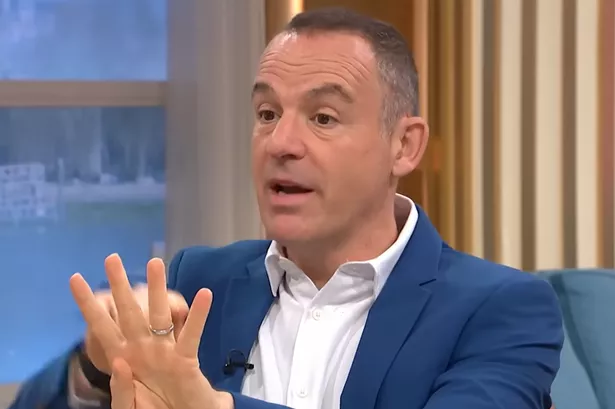The Money Saving Expert said that people do not pay tax on savings accounts – it is the interest that those savings generate that is taxed.
13:34, 21 Sep 2025Updated 14:34, 21 Sep 2025
 Martin Lewis said people on the middle tax band would start getting taxed on savings interest when they have £10,000(Image: ITV)
Martin Lewis said people on the middle tax band would start getting taxed on savings interest when they have £10,000(Image: ITV)
Martin Lewis issued vital advice for savers, warning that some individuals could face tax bills if they have more than £10,000.
On his BBC Podcast, the personal finance expert clarified that it’s not the savings themselves that are taxed, but the interest they generate.
He also provided advice to younger savers in their 20s or 30s, suggesting that under certain circumstances, bypassing traditional savings accounts might be the smartest move.
He elaborated: “The more you earn and the more savings you have the more likely you are to be taxed on your interest.
“If you are a basic rate taxpayer – a 20 per cent rate taxpayer, you are allowed to earn £1,000 of interest in all savings accounts tax free. Above £1,000 interest it is taxed. If you are a higher rate 40 per cent taxpayer you’re allowed to earn £500 interest tax free.”
This implies that a person on the higher rate would need to have £10,000 in savings in the highest rate savings account before being taxed. Individuals earning over £125,000 don’t receive a tax-free savings allowance.
Mr Lewis pointed out that most people will manage to avoid tax on savings – as long as they make informed decisions.
This is possible by using accounts like cash ISAs which offer tax protection, with individuals able to deposit up to £20,000 each year.
He explained: “You don’t pay tax on savings, it’s the interest you earn on savings that are taxable. But most people won’t earn enough interest because there are allowances that you’re allowed to use, so you won’t pay tax.
“The most important one for taxpayers to know about is the personal savings allowance, which means for a basic 20% rate taxpayer, you can earn £1000 a year of interest from any source, any savings, you won’t pay tax on it. Higher 40% rate taxpayers get £500 a year tax free, top 45% rate taxpayers don’t get a personal savings allowance.
Content cannot be displayed without consent
“But think about this for a second. If you put the money in the top easy access account at the moment that pays 5% interest, you would need £20,000 in it to generate £1,000 of interest. So it’s only as a basic rate taxpayer, if you have over £20,000 saved that you may be paying tax.”
This also suggests that someone paying 40 per cent income tax would need £10,000 in the highest-paying savings account to breach the tax threshold. Mr Lewis clarified: “But as well as your personal savings allowance, you’re also allowed to save £20,000 a year into a cash ISA. Now a cash ISA is just a savings account where the interest is never taxed and it doesn’t count to your £1,000 a year, so it’s an extra allowance on top.
“You can put £20,000 in per tax year and the top payers of that are paying 4.76% at the moment, Easy access, so you can even take your money out when you want to. So with a combination of the personal savings allowance and cash ISAs, the vast majority of people don’t need to be paying tax on their savings.”
In recent developments, Chancellor Rachel Reeves opted against pursuing rumoured plans to reduce the annual ceiling on cash ISAs from £20,000 to £4,000. The proposal had reportedly been considered as a method to push people towards investing in British companies rather than maintaining funds in savings accounts.
Nevertheless, Mr Lewis indicated that for particular savers, channelling money into investments might actually yield significantly higher returns, even though the ISA limit remained unchanged. He noted: “If you are 20 or 30 and you have some spare cash that you can put away that is not going to be imminently usable for you and you’re not going to need it for 5, 10 or 15 years, if you put it in a wide spread of investments – could be a global index tracker fund.
“Then, on the balance of probabilities, that will substantially outperform putting your money in savings, and you will be better off doing so. So the answer for certain amounts of cash you can afford to risk is yes you would be better off investing if you’re doing it for the long term.”

